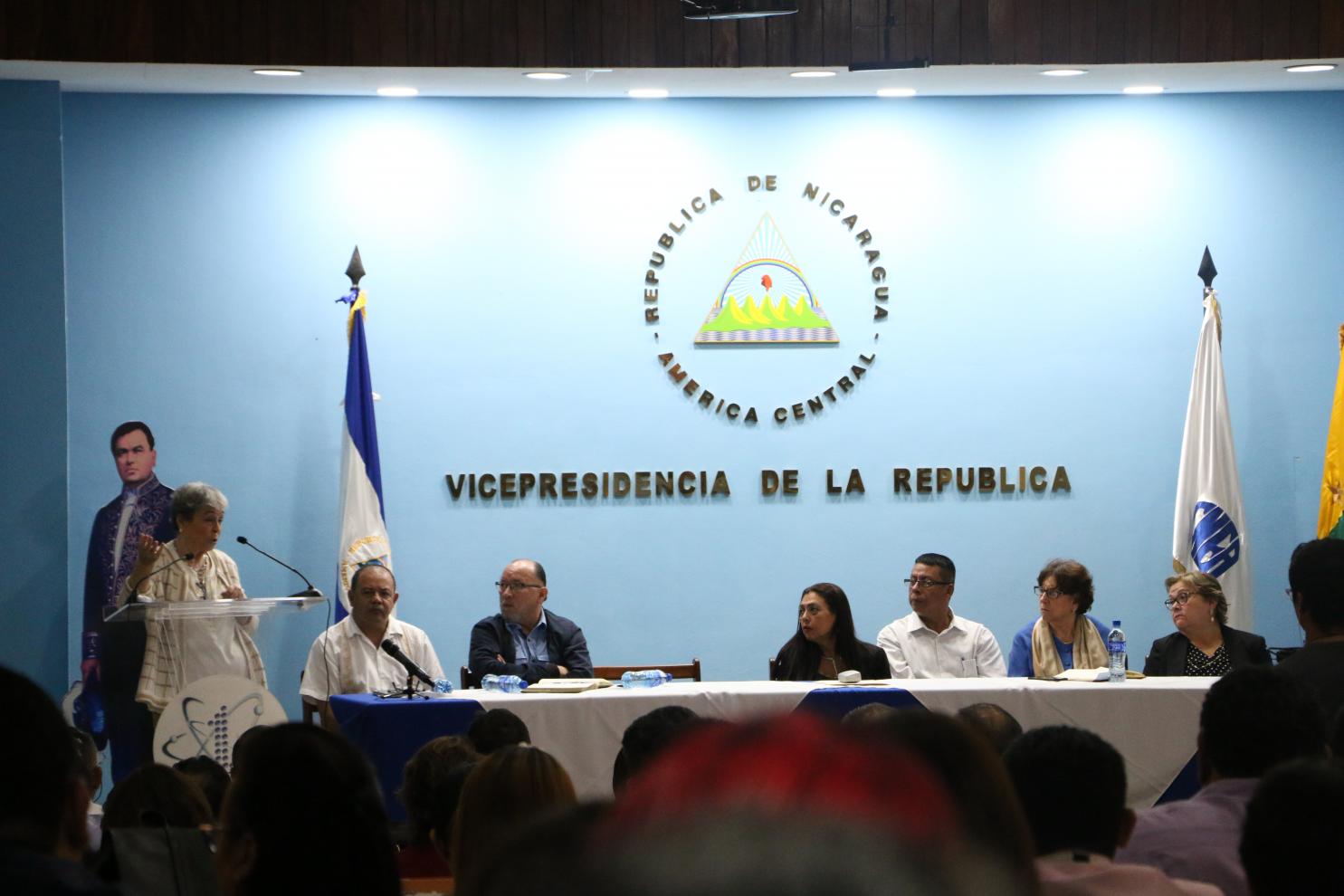
Quality Management Model in higher education IES
By: Juan Polanco Hernández
Within the framework of URACCAN's agreement with the National Council for Evaluation and Accreditation (CNEA), Integral Risk Management and Adaptation to Climate Change from an Intercultural Gender Perspective, in the career of Agroforestry Engineering, the Master's Conference was held, "Model of Quality Management in the IES of Higher Education", issued by Dr. María José Lemaitre. During the conference, universities that are immersed in the national evaluation and accreditation process participated.
During her speech, Dr. Lemaitre emphasized the importance of evaluation and accreditation and quality management processes in universities and Higher Education Institutions, nationally and internationally, based on criteria developed from evaluation agencies or councils, leading to quality assurance with relevance of Education at all levels.
"Having to really think about quality issues is a very valuable opportunity and it is very important for me to see how these processes are developing in different countries," he said.
Importance of accreditation processes
The professor also assured that accreditation and evaluation processes are important for national universities and the region, as they are seen in the need to analyze their resources, processes and results from a quality perspective; further noting that accreditation processes must respect the institutional purposes of universities.
"I think there is a very important advance in the work that is being done from the CNEA, of generating spaces for discussion, spaces of shared reflection, which will then be a mechanism for improving quality for all universities," he added.
For her part, Dr. Maribel Duriez, president of the CNEA, shared that all universities have carried out self-assessment processes, which means a breakthrough in the evaluation and accreditation process at the international level, since it is a plus for the recognition of post-accreditation degrees.
Relevance assessment
Similarly, Lemaitre referred to the relevance that the university must have in each incident space, referring to the university's responsibility for defining its processes and us evaluation agencies or councils, "If universities are able to reflect on its quality, to define how they will understand it and to move in that direction , then there's a tremendously important task there," he explained.
In this same sense, Dr. Duriez explained that relevance is of paramount importance to the processes that develop in Higher Education, since it has to do with social development, not just at the academic level.
"Higher Education must have an impact, because a university that does not train professionals for society cannot be relevant, so somehow evaluation and accreditation force universities to work with relevance," he said.
Intercultural Quality Management
For his part, Dr. Eugenio López, vice-chancellor of URACCAN new Guinea, assured that for URACCAN it is of paramount importance to participate and be key players in these accreditation and evaluation processes. "We are working on accrediting the first career at the national and Central American levels and that is very significant and our model of Intercultural Community University, twinned with the CNEA, will be a lot of learning for the country, URACCAN and the CNEA," he argued.
In addition, López explained that university management, from an intercultural perspective, means having a broader and more relevant approach, "It is the confirmation of 25 years of struggle to incorporate interculturality as an indicator of quality in Nicaraguan Higher Education", he said.
Under this same approach, Dr. Lemaitre commented that interculturality is a challenging issue for universities in Latin America, as it means understanding different cultures, "And that cultural diversity enriches us and makes us much more people and much more belonging to a world, which is broad, but does not have to be alien," he explained.
An enriching experience
According to Dr. Maribel Duriez, working pioneering processes with URACCAN, as a representative of the Caribbean Coast, and under his approach to Intercultural Community University, has added value in these joint processes.
"It has allowed us to grow in terms of understanding the cultural diversity and institutional diversity that exists in the country in the field of higher education," he concluded.
- Log in to post comments
- 226 views
